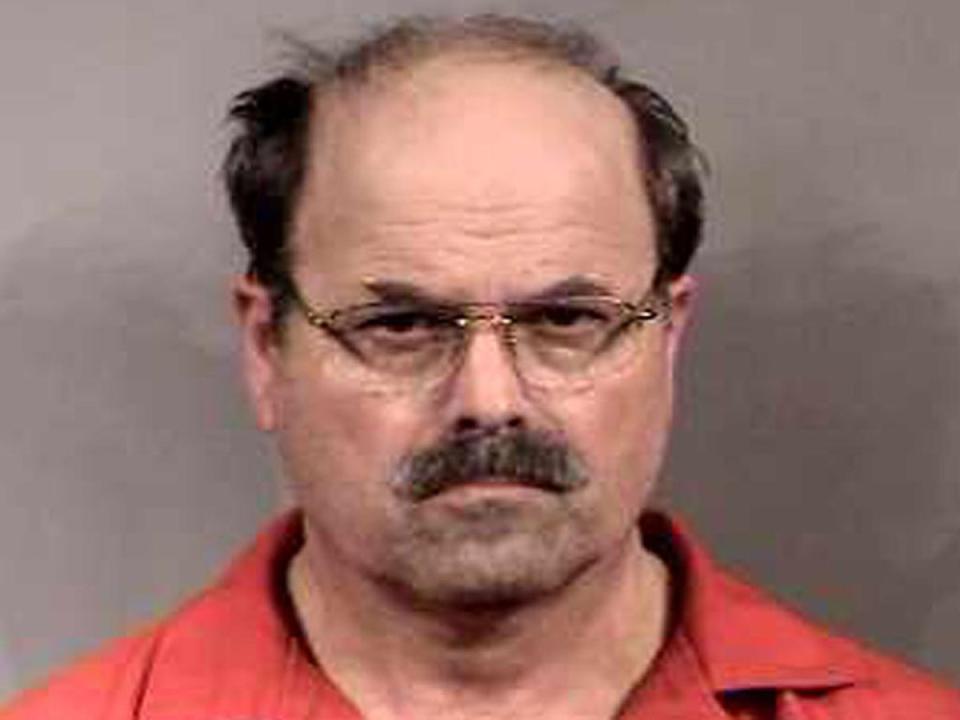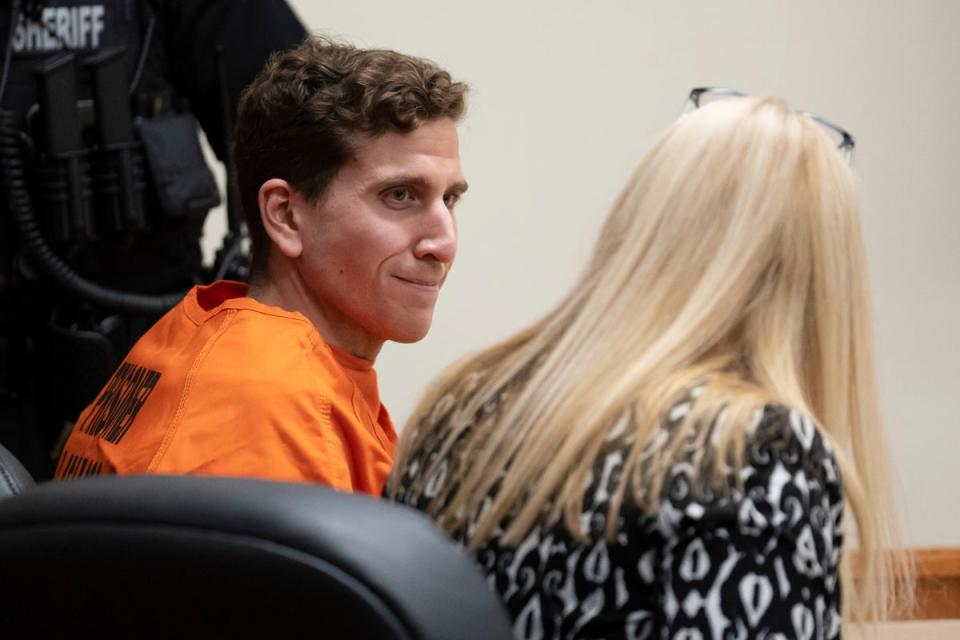BTK killer Dennis Rader shares sympathy for Idaho murders suspect Bryan Kohberger
Serial killer Dennis Rader has expressed sympathy for Bryan Kohberger as he awaits trial in the Idaho murders.
Rader —who gave himself the title of the BTK killer because he bound and tortured his victims before killing them — is serving ten consecutive life sentences in a maximum security prison in Kansas after he confessed in 2005 to killing 10 people over a span of three decades.
In an interview with Fox News Digital on Wednesday, Rader said he understands how Mr Kohberger must feel while in solitary confinement at Latah County Jail ahead of his preliminary hearing on 26 June.
“Since I spent from February 2005 to April 2005 in a cell by myself, I know how he feels. Very lonely,” Rader told the outlet, adding that his situation improved when he was allowed to receive mail. “And soon letters started to come in ... [I] read a lot of the Bible and wrote poetry.”
Rader’s name was first linked to the Idaho case last month after it emerged that Mr Kohberger had been a student in a criminology class taught by Dr Katherine Ramsland, the leading academic authority on the BTK killings.
Mr Kohberger had just finished his first semester as a criminology PhD student at Washington State University when he was charged with the stabbings s of Kaylee Goncalves, Madison Mogen, Xana Kernodle and Ethan Chapin on 13 November.
Last month, Rader’s Kerri Rawson daughter told The Independent that she had “sensed” his father in the Idaho murders.

She later learned that Mr Kohberger had gained a Master’s degree in criminology in 2022 from Pennsylvania’s DeSales University, where he was taught by Dr Ramsland.
Dr Ramsland, a world-renowned expert on serial and mass killers, wrote the 2016 book Confession of a Serial Killer: The Untold Story of Dennis Rader, the BTK Killer, in 2016, drawing on hundreds of hours of interviews and phone conversations with the serial killer to delve deep into his psyche.
Ms Rawson said she refused to participate in the book, which documented in explicit detail Rader’s 10 murders in Wichita and Park City, Kansas, between 1974 and 1991, through crime scene reports, jailhouse visits, telephone calls, and written correspondence.
“I ended up actually back in trauma therapy while reading that book. I was still mad at my father. I threw the thing across the room,” Ms Rawson, who wasn’t even alive when her father committed his first seven murders between 1974 and 1977, told The Independent in January.
Rader had been a respected president of his local church and a Cub Scout leader, who secretly carried out a series of sadistic murders while bragging about his crimes to the media. He came up with the “bind torture kill” moniker in letters to Kansan media.
Ms Rawson said her father earned a degree in criminal justice at the same time he was committing murders in the 70s. According to The Wichita Eagle, he was also a peace and compliance supervisor in Park City.

Rader did not have a trial, instead confessing to his crimes after his arrest. Mr Kohberger, on the other hand, has said through his former public defender that he is “eager to be exonerated.”
The affidavit for his arrest gave new details about what led investigators to the suspect but still offered no connection between the victims and Mr Kohberger.
The documents did reveal that investigators believe Mr Kohberger may have stalked the student home in the run-up to the mass murder, with cellphone data placing him around the property 12 times before 13 November.
Police said that his DNA was found on a knife sheath left behind at the scene by the killer and his white Hyundai Elantra was caught on surveillance footage at the crime scene at the time of the murders, the affidavit reveals.

Police in Washington also unsealed search warrants for Mr Kohberger’s apartment in Pullman and his office at Washington State University (WSU). The searches were carried out on the same day that he was taken into police custody in Pennsylvania.
The unsealed documents reveal that investigators seized a string of items from his home including possible human and animal hair strands, a disposable glove, items with red and brown stains and a computer. No items were seized from his office which he shared with other PhD students
He faces life in prison or the death penalty for the murders that have rocked the small college town of Moscow and hit headlines around the globe.


